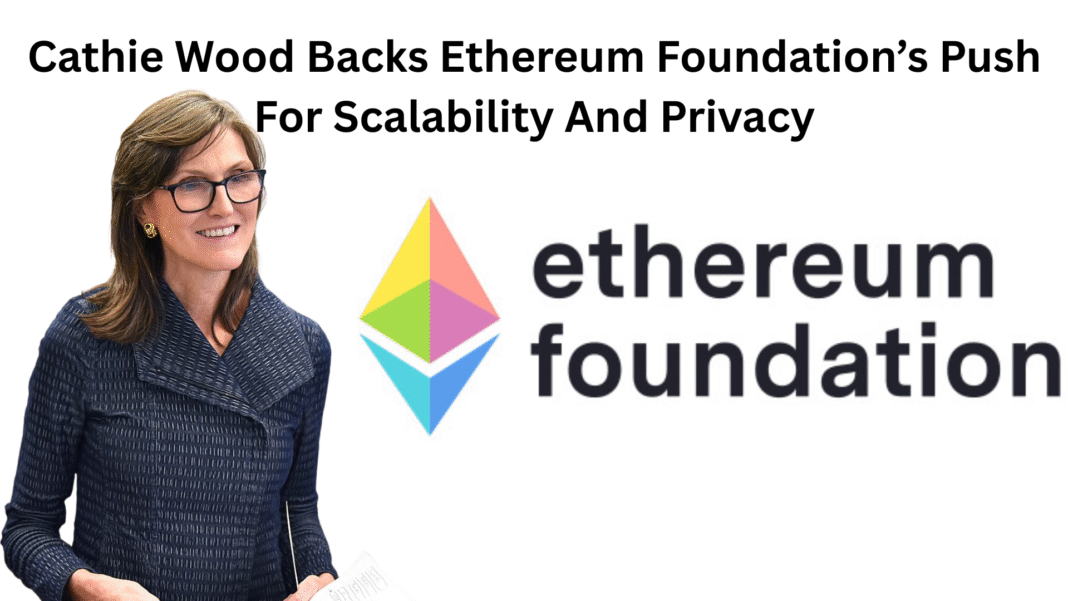Cathie Wood, the chief of ARK Invest, threw her support behind the Ethereum Foundation’s new plan to make its network faster and more private. She said the group aims to integrate zero-knowledge proofs into the main chain by updating key components of its technology.
This move takes place as Ethereum attempts to maintain its leading position among major investors. Wood noted she does not grasp every detail but believes the changes match what the market needs to grow securely.
Also Read: Ethereum Foundation To Match $2M Tornado Cash Founders’ Fundraising For Legal Defense
Support from Cathie Wood
Wood admitted she isn’t an expert on every code change. Still, she said the Ethereum Foundation seems to be doing the right things. Her view comes after an ARK Invest researcher highlighted a blog post from the foundation.
In it, Ethereum pledged to go “all in” on zero‑knowledge tools. Wood thinks these steps will help Ethereum stay ahead in the institutional world.
The foundation’s plan has two main parts. First, it will tweak the execution layer so that zero‑knowledge proofs run more smoothly. One example is the EIP-2537 update, also called the Pectra fork.
Second, it will change how validators check blocks. Instead of running every transaction again, they will just check the proof. This could cut down on work and speed up the whole system.
Impact on Validators and Builders
With the new system, builders and proofreaders will do more of the heavy lifting. Validators will need to check proofs, and a change may let more people run a validator with fewer gears.
It also means builders and proof makers need strong hardware and software. If they stop working or team up in the wrong way, block creation could slow or stop. That risk has to be watched closely.
Ethereum has set clear targets for the upgrade, aiming for 99% of proofs to be completed in 10 seconds or less. The hardware cost for proof makers should stay under $100,000 and use no more than 10 kW of power.
Proof files must stay under 300 KiB so they fit in blocks and do not eat too much bandwidth. Finally, security must meet a 128‑bit standard, which is tough enough to resist future threats.
Broader Changes and Next Steps
Along with zero‑knowledge proofs, Ethereum plans to boost its data storage layer. This “blobspace” addition will let the network hold more data at a lower cost. Together, these ideas aim to give Ethereum a fast, private, and scalable base layer.
The foundation outlined who will write the code, where changes will happen, and when validators can switch over to new clients. They also explained how each phase will roll out, starting with a Layer 1 zkEVM.
This upgrade shows how Ethereum’s culture is shifting toward more privacy and speed. It also highlights the balance between letting anyone run a node and asking proof makers to carry more load.


